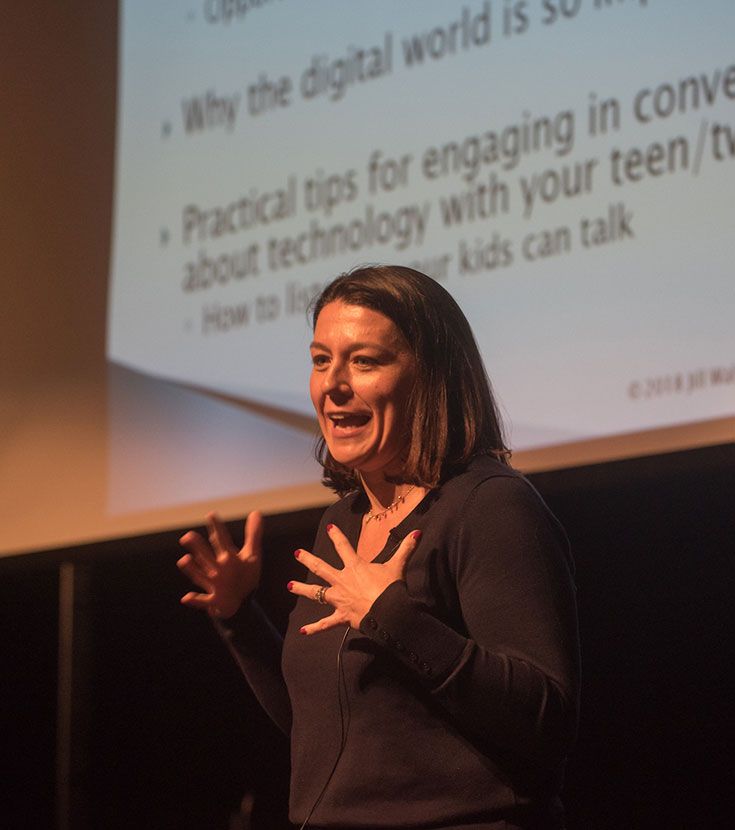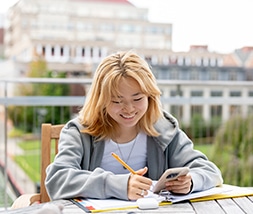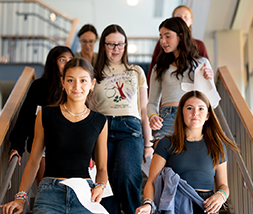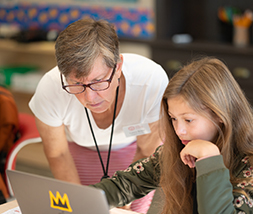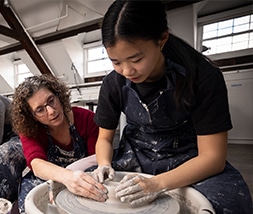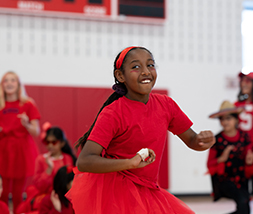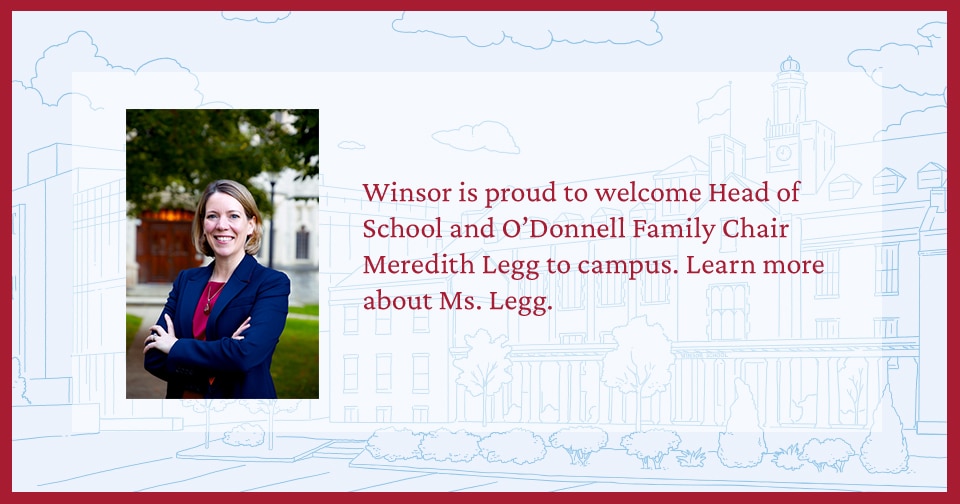Teens and Social Media: Insights from Dr. Jill Walsh
As Dr. Walsh explained in her October 11, 2018, presentation at Winsor on “Teens and Social Media,” the changing landscape of technology is also challenging to both teens and their parents.
Winsor parents enjoyed her fresh and practical insights in the first of the year’s evening programs, sponsored by the Winsor’s Parents’ Association and organized in collaboration with the school’s Wellness Department.
A researcher and faculty member at Boston University, she has studied and researched the digital lives of teenagers for many years.
For teens, social media is now the platform for creating and building relationships and staying connected to their friends, Dr. Walsh explained. It’s no longer the “home phone” or “trips to the mall” to socialize. Adults need to communicate with teens about technology and approach conversations with empathy and an open mind.
As adults, we need to start to reframe our thinking when navigating the digital world and teens, she reflected. We need to understand that teenagers are socializing like we all did at their age, except now it is on a device and much more complicated. Communicating via this platform has amplified the challenges that we once faced. How do our teens cope with social pressure? How do they make good decisions? How do they create healthy boundaries? Teens need guidance in navigating this new territory.
In offering some perspective, she compared technology use to eating food. Some forms of technology are better for you the others, just like some foods. Some people can easily stop eating from the tub of ice cream and others have a harder time stopping. Its similar when it comes to technology use, some teens will be able to manage their technology use and some will not.
Should we be worried about addiction? Dr Walsh reports, “In most cases they aren’t addicted to technology, they’re addicted to each other.”
Key recommendations/strategies:
• Encourage downtime! Help them figure out what they can do for downtime that doesn’t involve a phone. Read more: Reclaiming downtime
• Make a plan about technology use as a family and be a role model. Try the app “Moment” as a way of all family members tracking how much time they spend on different apps on their phone and using this as a way to police their and their children’s consumption of social media.
• Discuss the effects of technology. Discuss technology in relation to well being and how it can have negative effects on sleep, emotional contagion, and body image and self esteem. Read more: Making Digital Well-Being a Habit
• Discuss what to do if encountering explicit or inappropriate content. Discuss with teens what to do if they see explicit or inappropriate content online, such as racist, misogynistic, or homophobic speech or sexting.
• Use the resource Common Sense Media.
For more information, look for Dr. Walsh’s book, Adolescents and their Social Media Narratives: A Digital Coming of Age (Routledge, 2017). She specifically explores how social media impacts personal development of teens.
